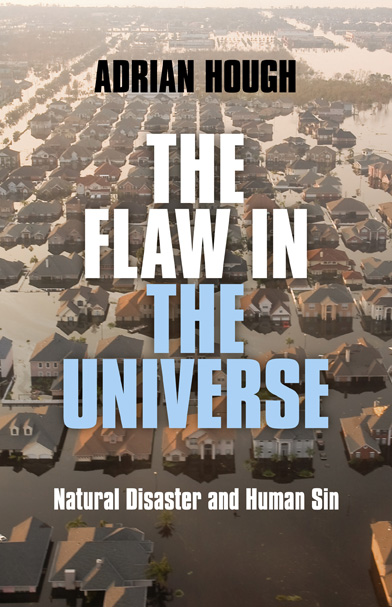Flaw in the Universe, The
Natural disasters and human suffering imply the universe is flawed. However, combining scientific and religious explanations produces a remarkable conclusion.

Natural disasters and human suffering imply the universe is flawed. However, combining scientific and religious explanations produces a remarkable conclusion.
Natural disasters and human suffering imply the universe is flawed. However, combining scientific and religious explanations produces a remarkable conclusion.
Christian theology (general), Christianity (general), Religion & science
When we look at the world around us, one of the most common observations is that things have a tendency to go wrong. People make mistakes, have accidents and some of them commit deliberate acts of violence. Disease affects every single species of plant and animal on the planet. Natural disasters kill millions of people and decimate animal populations. Countless people and animals suffer through no fault of their own. Scientists explain these events in various ways depending upon whether they involve errors in human choices and actions or whether they are caused by natural events. Christian theologians give us a different set of religious explanations. At times it can appear as if there is a fundamental flaw in the universe. In this book, Adrian Hough uses his training and expertise as both a scientist and a theologian to approach this flaw from both directions and comes up with the astonishing result that both sets of reasoning might have the same fundamental explanation. Using this discovery he then develops a way of reconciling belief in a loving God with the hurt and damage which is caused when things go wrong.
Click on the circles below to see more reviews
Engagingly written, this book is accessible to readers with no background in science and only little in theology. There is much food for thought in this little book. Although I find the arguments unconvincing, I consider it a welcome contribution to the ongoing discussion concerning science and religion. ~ Heige Kragh, Modern Believing
This book, written by Adrian Hough who has both science and theology degrees from Oxford University, looks at the relationship between science and theology through the perspective of the Second Law of Thermodynamics and its resonance with the Christian doctrine of Original Sin.
A significant contribution to our understanding of suffering and evil as well as to the dialogue between science and theology ~ Rt Revd Michael Langrish, Bishop of Exeter
Dr Hough frees Christian discussion of sin from the moraliser's bedroom and brings it into the laboratory, where he and his readers can engage in a proper study of why things go wrong, both theologically and scientifically, in our world. ~ Rt Revd David Walker, Bishop of Dudley
Dr Hough brings to this book distinction in chemistry and passion for Christian doctrine. Not everyone will be persuaded by his particular fusion of the two, but no reader will fail to be informed, challenged and stimulated. Great themes often omitted from the science-theology conversation - such as atonement and Eucharist - here find their proper place in an intriguing account. ~ Christopher Southgate, Research Fellow in Theology, University of Exeter and author of The Groaning of Creation - God, Evolution and The Problem of Evil